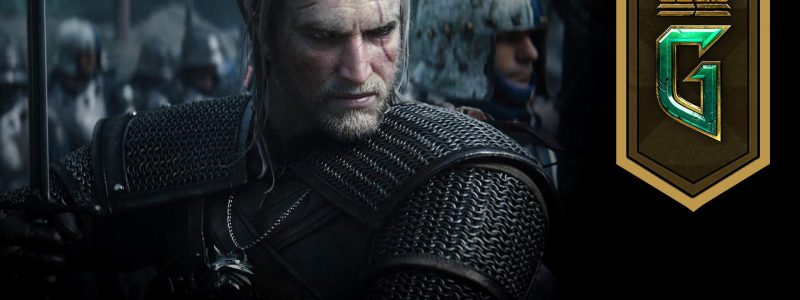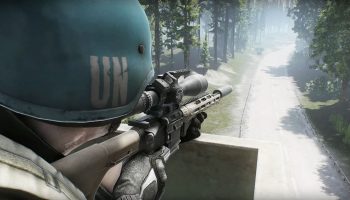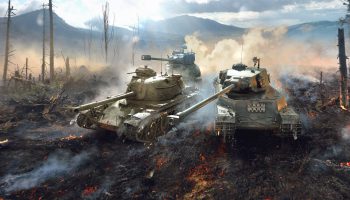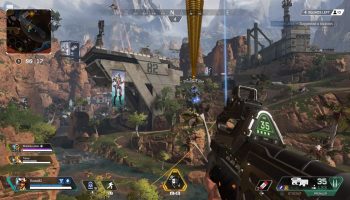This post mainly addresses problems with the Elf pool and by that, specifically, with cards that currently function with swarm/Elves, not movement or CoN. There is nothing too problematic with the Dwarf bronze pool but a lot of this post does address them, simply because they do function in a very similar way to Elves. Movement and CoN archetypes are seemingly OK for the time being and this post doesn’t deal with directly. When referring to a different archetype, I have (hopefully) stated this. On a similar note, this post refers to control many times. By control I mean simply damage and not removal. Subsequent expansions and updates have blurred the lines on this issue and I feel it’s important that a difference is made for the understanding of this post.
This post comprises of 4 main points. The fifth and final part is a small summary of interactions that appears to be neglected or broken. I have tried to avoid mentioning specific cards and changes as the devs (obviously) have a much better handle on this than I do, and instead focus on wider problems and possible solutions that could give Elves, in particular, a sharper focus.
<Scooby Doo style flashback initiates>
Since Homecoming, the faction’s function has been control i.e. damaging units by small amounts, with these small amounts of damage accruing the deeper (with the help of row punish) in a round you go. Homecoming replaced ST’s tribal identity with a much broader and all encompassing one. This changed was necessitated (or at least, I guess) by the fact that with a smaller of bronze pool of cards to draw from, different units of different factions could be mixed to offer a greater variety of play styles than in Beta. Players had the chance to mix and match their favourite cards and combine them with new leader abilities, which were no longer tied to specific cards. This approach worked well as Homecoming was fairly thin on the ground with engine decks. It did, however, make the game as a whole feel very binary and boring to play.
Inevitably the game progressed and more engine cards were introduced to improve the game experience and counter damage. In this natural progression, control was superseded by removal, as more and more factions needed to tech against engine decks with a control option. The value of control slumped as the value of removal rose, leaving ST with huge bronze pool of very similar cards of suspect value. What was lost during this transition was ST’s faction identity. With control being surpassed by removal and there being no incentive for the control (like Bloodthirst), the faction on the whole became listless. It is not to say the faction was weak but rather the meta outgrew the feasibility of faction’s design.
As more cards have been added, more archetypes have needed to be supported. Harmony, Swarm, Dwarves, Control (which has morphed into no-unit), CoN and now Spellatael have all been introduced, stretching the bronze pool to breaking point and leaving little room for archetype specific cards, as each bronze needs to have utility in other lists. Cards that might have been reworked have not been so because they are required to do so much heavy lifting. It is the sheer weight of these archetypes that is problematic for more interesting card design.
And that’s the problem, it’s not that these cards aren’t functional; it just feels very underwhelming when you have a choice of 5 dmg cards that do principally the same thing, and for what? There is no faction identity that benefits damaging cards, and no gold cards that synergize with this ability, except maybe Schirru, which, for a variety of reasons (armour for example) is wonky in the extreme. And, given its ability, should remain this way.
Powercrept control cards from Homecoming are not the only design flaw that has failed to be address. On a similar note, a great deal of cards that didn’t damage by 2, boosted by 2 instead. As spot removal has become more prevalent to combat engine decks, being able to boost a unit and it still being within removal range is utterly futile, especially as a lot of boosted ST units (be it being buffed in hand or on board) can be removed in 1 turn. There is nothing wrong with a faction being non-dependent on engines but at the very least, if a card boosts on the board or handbuffs by more than 1, split the boosts so the ‘long round faction’ has a chance to gain points. Its inherent strength (long rounds, small units) shouldn’t be countered in just one turn by removing a boosted card. These are fundamental problems in design that still haven’t been addressed. Added to this ST carries too many archetypes and is hampered by mechanics that make little sense its overall strengths. The purpose of this post is too point these out and suggest how they may be changed, and less so about individual cards. I have full faith in the devs coming up with awesome cards but worry about how they might find the time to implement deeper structural changes. Understandably, restructuring on this scale is a mammoth task and probably amounts to an expansion worth of work, at least, but a soft reset will benefit the faction in the long term. The game is still great, even to this day btw.
Increase Deathblow, charges and targeting of multiple units. This is perhaps the most glaring admission of them all. Why in faction that has so many damage cards is there almost no Deathblow? As mentioned earlier, given the archetypal diversity of the faction as whole, there is reasoning to having solid value damage cards but these damage cards need to have an incentivized reward for inclusion. Considering the amount of Elven units that can damage, this is the easiest way to improve the bronze core collectively. In their current state, choosing which bronzes to include for whichever reasons really only revolve around prov cost, as they all do a similar thing. There is no decision making to be made, which detracts from the fun of deck building. Deathblow could be applied in a number of ways. The most obvious choices would be DB archer, Milaen and Schirru. With the ability to destroy more than one unit at a time, Deathblow could operate on a system that has an incremental effect depending on how many units are destroyed. It would also throw up some interesting problems when deck building; e.g. Do you include a wide damage card such as DB Bomber to set-up Deathblow 2 for a DB Archer, or a Pitfall Trap or Toruviel for Deathblow 4 on Milaen? It could even be used for Schirru; e.g Deathblow 3, he doesn’t destroy himself. Really, the whole basis of Deathblow is extremely flexible (it could be summon, draw, boost, poison, veil..) and that incentivized reward system for control cards such as Elves is really lacking, both in terms of game play and game planning. These were rather hurried suggestions but while the ideas may be rough the principle is solid – these changes tie into the faction’s identity as a whole – payoff for damage, synergies between gold cards and bronzes, as well as potential small buffs for powercrept units that can hit 2 or more targets at once. Moreover, Deathblow is ideal for long round factions whilst still with obvious drawbacks in the short round.
For this system to be viable there will have to be changes made to certain cards, of course. Some cards may need order or some (traps) should trigger only when certain board conditions are met, but perhaps the cleanest way to achieve this would be to use charges. It would allow players to float damage (or boost for if thought viable) with each card gaining additional charges from units that appear on its row.
Remove handbuff but not Circle. Again, this is similar to my point about control and how, as a mechanic, does nothing for round or archetypal identity. In a faction of mainly deploy, non engine cards, having handbuff as such a fundamental part of ST makes little sense. Considering how many cards benefit from being boosted in hand, compared to the numbers of ways to handbuff a unit, it seems like an absurd waste of time and resource, particularly as ST is already juggling 6 or so archetypes. If ST were an engine faction then perhaps handbuff would fit better. Granted, certain archetypes (Movement) do benefit from handbuff but the costing of these engine pieces should be done solely on the merit of their prov cost/status and not with handbuff in mind. In short, handbuff makes balancing unnecessarily complicated and is detrimental to robust design. Outside of these engine interactions, I would argue handbuff achieves very little and goes against the grain of ST’s original design; going wide not tall and forcing removal heavy decks to target sub-optimally on deploy cards rather than engines. There is no wider strategy to buff anything other than engines (I’ll get to this). There is no overall game strategy behind it. It is just points for point’s sake and that is why it is flawed. Yes carryover is valuable but the mechanic itself is bereft of strategy. There are some good interactions with handbuff, being able to boost an immune card or proc Symbiosis seems like two good examples but the huge volume of it (7 cards, 1 leader) is way out of line with its need. There are, of course, 2 cards that utilize it (Skaggs and Aglais) and both do so in an incredibly stupid way. The problem with these 2 cards is they exist only in their own archetype. All mechanics; traps, poison, handbuff, should support a wide range of decks, not just one that aims to abuse blue coin. Fun as that may be, with such a strain on the card pool already, these cards by design have no utility outside of handbuff and is extra deadweight the faction has to carry. Both Aglais and Skaggs would function much better in Dryad or Dwarf decks, particularly as Dwarves are crying out for decent tall punish. If handbuff is really needed in certain archetypes then this could be added to any Deathblow effect. Deathblow has far greater utility because the cards are already designed to fulfill its function. For handbuff to become useful, more engines will have to be introduced.
And what about Schirru? Well, weird as it may sound, he is not really a handbuff card. The most reliable way of playing him with consistency and hitting that 5 point is with Council. The thought of using a low tempo card that can’t be tutored sensibly and that you might not draw, is, frankly, a waste of everyone’s time, including the Saboteur’s and the person who spent hours drawing it.
Bin Harmony. Get rid of Harmony. Yes, this is never going realistically happen and I do like harmony. Or rather, I like the theme of harmony but the way it functions is very dull and clunky. It seems strange for an archetype that was the faction’s saving grace could now be considered problematic. Before the card pool grew, Harmony did a great job of utilising cards in multiple lists but has now been superseded by CoN in terms of design. Now the card pool has grown, factions have become less reliant on multi-purpose bronzes. It seems perverse to invest time and energy into an archetype that functions as CoN poorer cousin. While the theme of Harmony is important to the faction as a whole, its design needs a rethink. There is no need for almost 2 identical decks in ST particularly as a lot of current Harmony cards can be reabsorbed into the card pool and these extra resources can be used to flesh out other archetypes. Gnomes absorbed into Dwarves, Elfs into Swarm and Dryads into CoN. Niche tags such as Beasts could function as control cards, similar to the brilliant Saber and Hawker as utility to artifact/trap. Removing an archetype must be a very complex and time consuming thing to do but it just seems deadweight. Perhaps the devs have other ideas (and of course know better) but I can’t see a way in which Harmony can be buffed to be on an even kneel with CoN. Harmony is just too clunky to equal CoN’s design and really feels like a millstone around ST’s neck. Scrap it. Take time on focusing on fleshing out other ideas in other archetypes and bring it back with a fresh focus. This soft reset approach will greatly benefit Harmony long term and save the designers constantly having to juggle provs, trying to make it work.
Expand the number of units that have interaction with Traps (!!). This may go against the general consensus but units that support traps should be increased. That is to say, means and methods introduced to steer traps away from no-unit lists. The reasoning for this is simple; introduced correctly; traps should be used as a mechanic and find utility in a wide variety of archetypes, offering different play styles and deck building options. Unlike handbuff, traps form a key cornerstone of ST’s identity, Dwarves and Dryads included. A small adjustment of how traps are implemented and some added units with Deathblow would tighten up the bronze pool immeasurably compared to handbuff, as small damage cards would be so much powerful. If traps are to be used as intended (there was a quote from Slama saying they should support archetypes) some serious restructuring is needed. Traps, in their current state, only function as an archetype that is to say because of prov cost (Gambit, Iorveth and Hattori) and design (Eldain) they are only used in Trap specific decks. If their costs were adjusted and they could be used as say; spawn a copy of a bronze trap on the bottom of deck or spawn/play a unit that synergized with traps on Deathblow (or not), they would be able to slot into a wider number of decks and be the mechanic as intended. There are many ways to encourage unit based trap decks that haven’t really been explored; better passive engines that encourage play early, damage traps that trigger only when certain unit concessions are met (be it by number of units on your side or the opponents) or traps that spawn a unit on Deathblow, such as a small powered token that buffs itself by 1 every time a trap is triggered during that turn. Different traps could even have different Deathblow effects with each faction in mind, such as random vitality or boosts, depending on how many units are in play. The design of cards, of course, will still need to be changed. Incinerating trap is not only bad because it’s a no-unit removal card, it’s bad because it doesn’t synergize with the long round strategy of Elven units and therefore has no utility in anything but a specific trap deck. It too, also prohibits good deck building with its prov cost. A weaker version at 4p (perhaps with a unit condition or Deathblow/Spawn) would fit into a great deal more decks that don’t lean entirely on Traps as the primary strategy. The same could be said of Eldain, an extremely poorly designed card that presents the exact same problems as Aglais; it is a blue coin abuse card that has created its own archetype because of the poor implementation of a mechanic. It is flawed without being broken, undoubtedly and should be changed for an ability that somehow encourages unit play. I’m not entirely sure how (and really want to avoid suggesting something) but with a bit of shaping him, and the rest of his trap loving brethren could potential serve as a mechanic across a wide range of decks and not just one and offer a richer variety of deck building.
Elves, too, need some restructuring of prov costs. There are far too many options around the 8/9 prov mark than is necessary and little choice at 10+. Some cards should have prov buffs (and perhaps abilities tweaked accordingly) to offer a greater variety around the 6/7 mark. Other cards should have their abilities buffed and prov cost nerfed in order to offer some solid options at 10+. Currently, the only real solid option for Elf decks is Vernossiel, which is auto-include in every Elf deck. As much as I love the card, it really detracts from the gaming experience when there is only 1 real solid option. As of yet Francesca doesn’t have Spellatael Elf support (and is proving to be a bit cumbersome tbh) and Ithlinne is so incredibly specific, she is entirely useless in all but one deck build around a mechanic that is stupid in the extreme. Perhaps she too will be changed to flesh out the reintroduction of Spellatael, currently she is redundant. There is also a huge number of Elfs at 4p that all function is much the same way. Rather, they function a bit differently but, as said, without a reason for damaging a unit by x, they are just as redundant to game strategy as each other. This has given deck building a really futile feel and cards are included primarily on prov cost due to the prov bottleneck at 8/9. A clearer strategy on costing is needed. It is not enough to juggle provs when the cards are not functioning as they could be. Cheaper design is not better design. Change some abilities (Deathblow, again!!!) and give the faction 2 or3 good options at 5p. Talking of 5p, again it seems odd that a faction that has virtually no tall removal has a condition in order to purify a defender, whilst NG has a 4p purify engine (used rarely in this way tbh) and an auto-include tall punish. Please change Sapper, either by removing his condition or reversing it. No tall punish for ST is bearable (although not understandable) but being further punished because of an unnecessary condition borders on the unfair, particularly in hybrid decks or decks that want to use other leaders except DA, it just closes deck building avenues for no particular reason. If need be Ida could be repurposed as a Spellatael card at 7provs, or Ida remains but Sapper redesigned for traps. There is no logic with purify in its current incarnation. I also still find it bizarre that Vernossiels Commando, an engine that comes down in removal range, has an extremely serve condition. It gets bricked by defender, which is maddening because defender is designed to protect these very engine cards. It remains a complete mystery why these issues haven’t been addressed. Please change the condition or at least re-couple it to something other than Vernossiel. She is rarely played anything other than last. PS should also be changed because of this. There is no need to spawn a Dryad Sentinel; its thinning ability has no wider synergy with Drayds of even a CoN deck. PS and Dryad Sentinel act as just another one of many bricks for VC and again prevent him from being used in anything other than DA. Change Sentinel to one of the many 4p Elves (Wardancer, BME) and give Elven decks some sort of some thinning. VC has far too many arbitrary conditions to be useful in anything but DA.
Lastly is really an idea how Movement might be expanded upon in future updates. Considering that there have been a number of failed attempts at implementing an offensive damage variant on moving opponents units (Saboteur, Sentry’s melee ability, Trophy Catch, Rock Slide, Sammun…MAB is good for its damage, rarely for movement) it seems that scrapping that idea altogether and starting with something anew would be worth considering. Currently movement is only considered between rows but should also be considered when moving from battlefield to deck or from hand to deck, like the beta days. Would make for a nice thematic inclusion and again, offer deck building options to help flesh out movements design a bit. It would also make a nice option at 5p, which has no good Elf choices. Officer would be prime for this because his current ability has no thematic connection and his Bonded completely unnecessary. The Bonded tag has no utility in an Elf deck (Dwarfs with NJ could probably use a little more Bonded) and is a hindrance to the card’s ability rather than the boon intended. If no new expansion of the movement idea is planned, it would also be nice, purely from a thematic perspective[R1] , if Dryad Matron’s ability was and she was redone with a vitality/veil interaction for CoN decks. At the very least remove bonded, it is another example of very poor design implementation. Finally, I know it’s new but Scribe’s design should be looked at. I feel it should boost itself every proc of its counter (perhaps incrementally; 1, 2, and 3). What it may lose in ceiling, it gains in being trickier to remove.
[R1]
Source: https://www.reddit.com/r/gwent/comments/o9jlmu/my_worthless_opinion_on_how_st_might_be_shaped/







